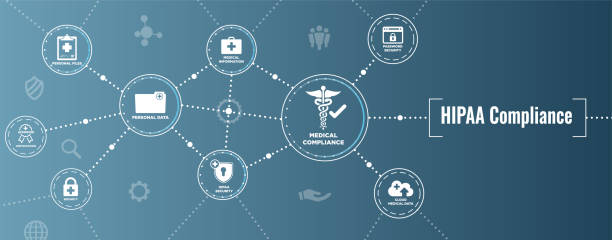Healthcare technology has revolutionized the way medical care is delivered, offering innovative solutions for patient treatment and diagnosis. From telemedicine and electronic health records (EHRs) to wearable devices and AI-powered health apps, technology is making healthcare more accessible and personalized. However, this also comes with a range of challenges and ethical considerations, particularly in terms of data privacy and security.
Introduction
Healthcare technology has the potential to improve patient outcomes and transform the medical industry, but it also raises important ethical questions about how to protect the sensitive information that is collected and shared. The use of healthcare technology is growing rapidly, but it is essential to ensure that it is used in a manner that is safe, secure, and ethical.
Data Privacy and Security in Healthcare Technology
One of the main challenges of healthcare technology is ensuring the privacy and security of patients’ sensitive medical information. This information is valuable not only to patients but also to cyber criminals who may use it for financial gain or to cause harm.
Threats to Patient Data Privacy
There are several threats to patient data privacy, including data breaches, cyber-attacks, and unauthorized access to medical records. Data breaches can result in the theft of sensitive medical information, which can be used for identity theft, fraud, or other malicious purposes. Cyberattacks can also disrupt the delivery of medical care, putting patients at risk.
Ethical Considerations in Data Privacy
In addition to the security risks, there are also ethical considerations in the collection and use of patient data. For example, patients must give their consent for their medical information to be collected, used, and shared. They must also have the ability to control who has access to their information and how it is used.
Protecting Patient Data
There are several measures that can be taken to protect patient data and maintain privacy and security. These include:
Encryption and Data Backup
Encryption is a process that makes data unreadable to anyone who does not have the correct key. This helps protect patient data from cyberattacks and unauthorized access. Data backup is another important step to protect patient information. Regular backups can help minimize the impact of data breaches and other security incidents.
Access Controls and Auditing
Access controls are procedures that regulate who has access to patient data. This can include user authentication, role-based access, and least privilege principles. Auditing is the process of tracking and recording access to patient data, providing a record of who has access and what they have done with it.
Training and Awareness Programs
Training and awareness programs can help healthcare organizations understand the importance of data privacy and security. This can include training on best practices for protecting patient data, as well as regular communication with patients about their rights and the steps being taken to protect their information.
Conclusion
Healthcare technology has the potential to greatly improve patient outcomes, but it also raises important ethical considerations about how to protect sensitive medical information. Ensuring the privacy and security of patient data is essential to building trust in healthcare technology and ensuring that it is used in a manner that is safe, secure, and ethical. By implementing encryption, data backup, access controls, and training and awareness programs, healthcare organizations can protect patient data and ensure that technology is used to improve patient outcomes, rather than putting them at risk.

